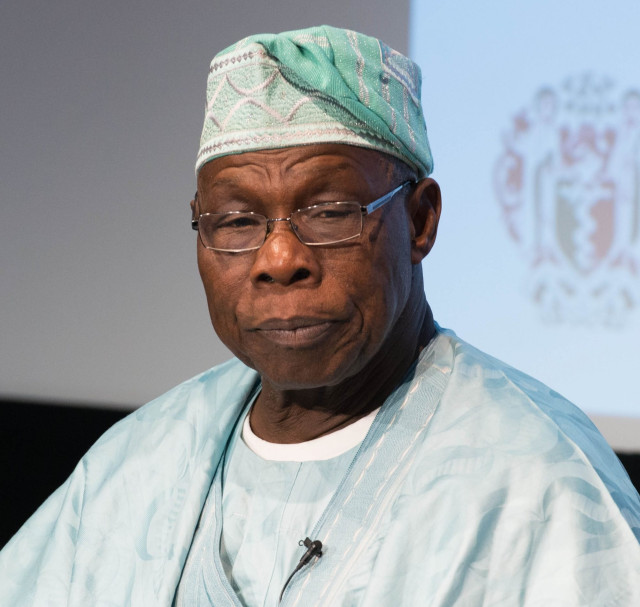Former Nigerian President Olusegun Obasanjo expressed his concern on Sunday during a lecture in Abeokuta, Ogun State, to mark his 86th birthday, that Nigeria and Africa have not taken advantage of advancements in science and technology to develop their agricultural sectors.
Obasanjo urged Nigerians to hold their leaders accountable for their lack of political will to make Nigeria the food basket of Africa. He emphasized the importance of food security and nutrition, stating that until African countries are self-sufficient in these areas, they cannot blame their scientists, but rather their politicians and farmers.
During his lecture titled "The Complex Dynamics in Achieving Food and Nutrition Security in Africa," former Director-General of the International Institute of Tropical Agriculture (IITA), Dr. Nteranya Sanginga, also lamented that African countries spend billions of dollars importing food. He disclosed that Nigeria spends N11 billion annually to import food into the country.
Sanginga urged the country to move from a consumption-based economy to a producing one to improve food and job security. He insisted that the country must utilize its fertile land and increase investment in agriculture to become self-sufficient in food production.
Obasanjo echoed this sentiment, stating that science and technology have given African countries the tools needed for food and nutrition security, but political will and action are required to achieve these goals. He asked Nigerians to pray and understand the factors that have prevented the country from realizing its potential and becoming a giant in Africa once again.
Obasanjo highlighted Nigeria's history as a leader in Africa, stating that at independence, the world referred to the country as the giant in the sun, rather than just the giant in Africa. He expressed disappointment that Nigeria had not lived up to this reputation and had become a dwarf of Africa.
Obasanjo also pointed out the reliance on Russia and Ukraine for wheat imports and questioned why African countries cannot produce carbohydrate-rich foods that can be used to improve food and nutrition security in the region.
Both Obasanjo and Sanginga stressed the importance of political will and investment in agriculture to achieve food and nutrition security in Africa. Sanginga urged African countries to utilize their natural resources and invest in technology to become self-sufficient in food production, while Obasanjo called on Nigerians to hold their leaders accountable and work together to achieve a more prosperous and self-sufficient future.




















